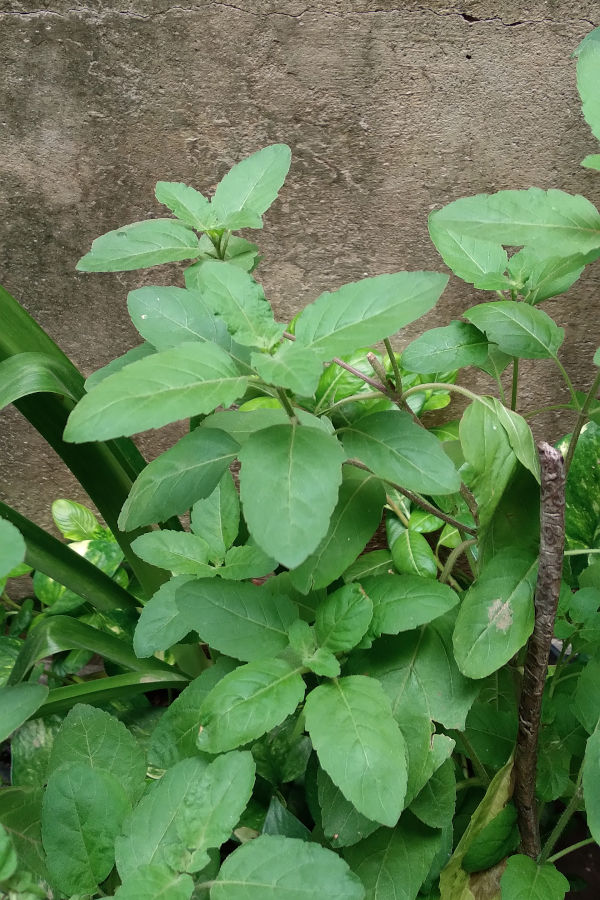Common cold is a common health trouble. As it’s widely accepted, common cold and virals are due to weak immune system. In Ayurveda, the key to preventing such ailments lies in maintaining a robust immune system.
In this article, let’s explore Ayurvedic remedies to improve our immune system, reducing your vulnerability to seasonal sickness such as common cold.
Ayurvedic Remedies to Fight Common Cold & Viral
Tulsi: Tulsi is an excellent remedy for common cold. Tulsi is known to boost production of antibodies, preventing infections and helping you cough out sticky mucus.
You can prepare tulsi tea (or kadha) by boiling some tulsi leaves in water. You can add crushed or grated ginger, black pepper (kali mirch), mulethi (licorice) and cinnamon to it. Strain and drink it warm like tea.
You can also consume tulsi leaves raw.
If you have space to plant tulsi, you must have some plants at your home.

Turmeric: Haldi, or turmeric, is a treasure trove of health benefits. This Ayurvedic herb is known for its potent immune-enhancing properties. In the majority of India, turmeric is already used in daily cooking. When you are facing a bout of common cold, you can intake a spoonful of turmeric powder along with hot milk or water.
Ginger: Ginger is a prominent Ayurvedic herb known for its exceptional immunity-boosting attributes. Include ginger into your daily regimen to strengthen your body’s defenses. Incorporate ginger into your meals or savor it as a revitalizing tea, allowing its natural goodness to invigorate your well-being. You can also add ginger to your regular tea.
Mulethi: Mulethi, or Licorice or “Sweet Wood”, is a great Ayurvedic herb for cough. Mulethi powder is useful in handling sore throat, cough, and excessive mucus production. Mulethi thins and loosens mucus in the airways, making coughing easier and reducing congestion. You can mix 1 teaspoon mulethi powder in warm water and drink it twice a day for relief from a bad cough. You can also take a mulethi root, and chew and suck on it. Making a hot tea of mulethi by boiling it in water is another way to consume this herb.
Pippali: Pippali is a beneficial herb for managing cold and cough. It provides relief from congestion and headaches associated with the common cold. Crush pippali into powder, and take a teaspoon of pippali powder with honey twice a day until cold and cough subside.
Sonth: Sonth, or dried ginger, is a great remedy for cough and cold. It also works well as a remedy for sore throats. Take sonth with honey as a medication for sore throats and cough.
Cinnamon: Cinnamon, or Dal Chini, has antiviral and anti-inflammatory properties. It provides relief from cold and cough by combating viruses and soothing a sore throat. Take a teaspoon of cinnamon powder with honey 2-3 times a day. You can also add it to your regular tea.
Gargling with Lukewarm Water: When you have common cold, add a tea spoon of salt to half a glass of lukewarm water. Gargle with this water for remedy from common cold. It is specially effective with sore throats.
Focus on Improving Immunity
The immune system plays an important role in defending our body against ailments such as common cold. It’s only when our immunity fails that we fall sick. Ayurved can greatly boost your immune system, protecting you from common colds and other sicknesses.
Amla: Elevate your defenses with amla, an Indian gooseberry packed with vitamin C and antioxidants. Embrace fresh amla, amla juice, or supplements to invigorate your immune responses.
Triphala Triumph: Triphala, a fusion of three fruits—amalaki, bibhitaki, and haritaki—reverberates in Ayurvedic traditions as a catalyst for overall well-being, digestion, and immune support. Its detoxifying nature contributes to respiratory health.
Dosha-Aligned Diet: Ayurvedic wisdom suggests consuming foods that align with your predominant dosha to maintain equilibrium. Opt for immune-boosting foods like fresh vegetables, whole grains, fruits, nuts, seeds, and herbal teas. Avoid heavy, processed, and cold foods as they can weaken digestion, affecting immunity.
Harmonizing Daily Routine (Dinacharya): Embrace a daily routine synchronized with natural rhythms. Consistent sleep-wake cycles and the integration of exercises, meditation, and self-care rituals foster equilibrium.
Prioritize Restorative Sleep: Prioritizing restorative sleep is integral, as it fuels the body’s innate immune functions and natural healing mechanisms.
Stress Mitigation Mastery: Unyielding stress can undermine the immune system. Harness stress-alleviating avenues like yoga, meditation, and mindful breathing for a harmonious mind-body equilibrium.
A combination of good eating habits, lifestyle changes, and overall well-being can strengthen your immunity, acting as your defense against infections. Remember, Ayurveda isn’t a quick solution, but a step-by-step path to lasting health. By staying committed to these practices, you can nurture a strong immune system and live a healthy life.
